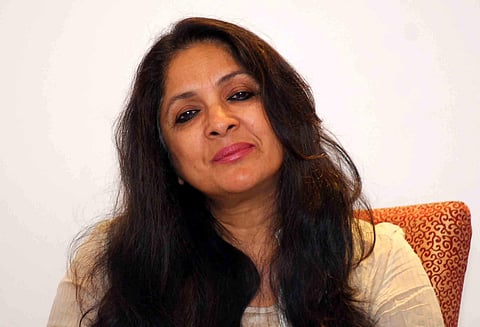

CHENNAI: During a recent appearance on Ranveer Allahbadia’s YouTube show, film personality Neena Gupta repeatedly said, citing numerous personal examples, that she just doesn’t believe in striving for gender equality.
I watched the episode with subtitles. I Googled what “faltu” means — as in “this faltu feminism”, Gupta’s own words. “This useless feminism”. I’m aware that Allahbadia, whom she was dialoguing with, has been regarded as problematic for various reasons, but his is not the kind of content that I consume or keep track of. Gupta though — as one segment of the show touched on — is considered likeable, especially by women in their 30s, including me.
There’s something relatable about her, in terms of who we can all be — those of us who live unconventionally, whether or not we are ambitious, and whether or not we are in or out of the public eye. I also like her daughter, the fashion designer Masaba Gupta, even though I can’t get out of my head the heavily loaded symbolism portrayed in one episode of her Masaba Masaba webseries. I can’t unsee the way she was flaunting and fondling lotus flowers while floating in a shikara in a lake in Kashmir. If you know, you know.
But to return to Neena Gupta: it’s true that she shouldn’t have to prove anything at her age, having already lived and loved in ways that are revolutionary to this day. The trouble is, however, that by not appreciating that it is because of a feminist movement that she has been able to experience that life — with all its regrets, and the volition she had anyhow — she doesn’t pay it forward. It’s because of feminism that she could raise a child as an unwed single parent, continue to find work as an actor in her 60s and to be a director at all, as well as enjoy a range of lifestyle opportunities and be able to tackle certain challenges more easily. How she expects women to be financially independent and be themselves, as she advises, without the feminist imagination, is not practically or logically coherent.
Perhaps the fact that she doesn’t identify as a feminist, despite being someone who could be a feminist icon, means that Neena Gupta is free of pressure in certain valuable ways. She needn’t be impacted by the incredibly facile pedestalisations and swift depedestalisations that frequently occur in circles and interfaces that publicly align themselves with progressive thought, since she has herself chosen not to make that alignment.
Yet, it is by acknowledging the collaborative, complex work of a movement that one gets to teach, or show, other people that they need not feel alone. It is also how one feels less alone. What I noticed throughout the interview was that Gupta repeatedly revealed her own vulnerability and exhaustion, sharing intimacies about her lack of confidence, her fear of needing other people, how marriage and child-raising are forms of bondage to women, and how dangerous it is to be female in this society. This is exactly why a conscious politics of care, intersectionally feminist, could matter to her and to others. There’s room in this movement for this and more.